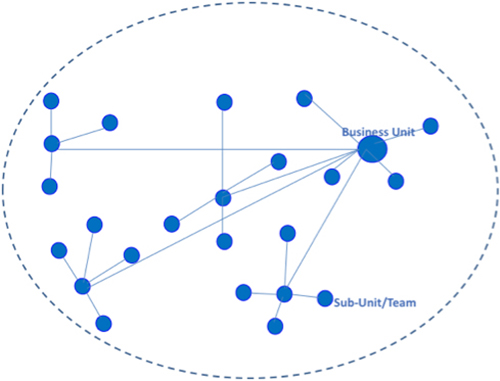Here’s interesting stuff from three economics / business guys — one from Stanford, one from Harvard and one from London School of Economics (the entire thing sounds like the beginning of a joke, right?) — about decentralized authority structures and innovation. The basic idea is that if your org and industry are rapid-fire and changing a lot — i.e. Silicon Valley — it’s very hard to have a centralized, command-and-control type system. (Seems logical.) To quote one of the authors:
Companies in fast-moving industries are likely to decentralize also because their highly educated employees typically expect a large degree of self-direction in their jobs. “If you’re, for example, Google, Intel, or GlaxoSmithKline, you’re going to want bright employees” — likely college graduates who value self-determination, says Bloom. “If you want a firm full of Ph.D.’s but have a command-and-control system, it won’t work.”
So much rolls up in this whole discussion, so let’s try to take it point-by-point.
1. I personally think decentralized approaches are better because they allow for more flexibility, although this varies by industry, specific organization, and the types of people you have on hand; some people can’t directly handle a decentralized set-up (some people honestly enjoy hierarchy because it provides context and comfort), and in those types of settings, having a decentralized approach wouldn’t be ideal. Ultimately, it’s all what works for you.
2. I sometimes worry that it’s hard to “generate experimentation” in any system because of this trend where everyone thinks they’re busy all the time. When you couple that with the idea of silos and the idea of less-than-ideal communications at work, sometimes I feel like the resulting situation is something like this (I’ve been in a few jobs that have felt this way): no one really knows what everyone else does, so when they reach out to people for help or new ideas or context, they’re not really sure how busy the other person is, so if the other person basically doesn’t like the idea or doesn’t want to take it on, they can always talk about how busy they are with their primary responsibilities, even though no one is entirely sure what those are. Sound familiar? I’ve seen it a few times. I think that cycle kind of dooms flexibility and experimentation regardless of the overall organizational model.
3. It’s interesting how certain cities — predominantly places like SF and Seattle — come to define themselves as more rapid-fire or decentralized cities, i.e. “tech hubs.” You can make a case that the branding of a city itself — both in terms of professional prospects and personal prospects — is the defining feature of the coming generations. Like, how do people perceive Columbus, OH vs. Atlanta, GA when evaluating a job? 30 years ago that might have mattered a little bit less; 20 years from now, it might be the question you ask. (This can all get thrown into whack if gas prices go way up and living closer to family is a much more logical idea.)
4. This was actually the original post I was thinking of writing, but I didn’t have enough time to research at a level that would do it justice — basically, you can make the argument that the only long-term competitive advantage of an org is its organizational health, right? Products ebb and flow with consumer interest. Needs for certain services ebbs and flows. Processes change (Google and Dropbox didn’t exist years ago). Things adjust and evolve, no? But if you have good people, you can get through any other contextual changes.
It frustrates me sometimes when you meet senior leadership at a company and they chase the next hot thing in org development, even though that thing wouldn’t be good for how their people tend to work. I suppose chasing fads in business is hardly a brand-new idea, but when it comes to the basic structure of how things are organized, who reports to who, how things get communicated … doesn’t it feel like that’s a space where people should think about it more before they dive in to a new concept?
5. One thing I’ve always been interested in is the line between “innovation” and “project management.” Ostensibly, they seem to be pretty different. “Innovation” conjures up one series of ideas. “Project management” is a whole different thing. In the former, you experiment and test and dive around and fail and get something awesome. In the latter, you have deliverables and you hit them. You often see different types of people in the “innovation” space vs. the “project management” space. Is there any place where those two overlap? I’m not sure — and I’m not sure they would in a more decentralized environment, either.
6. I think Google and Facebook and the like are probably awesome places to work in a lot of regards, but to assume there’s no hierarchy and politics there just because they’re more decentralized also seems like a fool’s errand, no?
